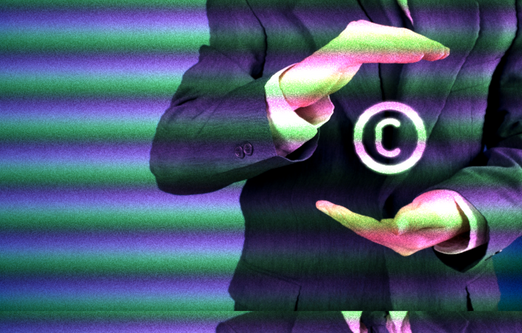In December 2020, a new law was signed into effect that established an easier way for individuals and businesses to sue for copyright infringement. The Copyright Alternative in Small-Claims Enforcement Act – the CASE Act – established a small claims court process within the U.S. Copyright office. A copyright claims board was established to hear copyright claims with damages totaling $30,000 or less. The CCB is a three-member tribunal staffed with attorneys who have significant copyright experience. The CCB began presiding over small claims copyright cases in June of this year.
 It can be expensive to litigate a copyright claim in federal court. The CCB provides a lower cost alternative to resolve claims. Claims are capped at $30,000 which provides some protection from the possibility of a higher damage award if the claim is heard in federal court. Also, the process has been designed to facilitate self-representation, which saves the parties the cost of legal fees. Although parties still have the option of retaining legal counsel if they so choose. The process is designed to be quicker and more streamlined than a regular court proceeding. Much of the case could be decided based on written submissions. There may or may not be a hearing. Discovery is limited and the proceedings are virtual so no travel is required.
It can be expensive to litigate a copyright claim in federal court. The CCB provides a lower cost alternative to resolve claims. Claims are capped at $30,000 which provides some protection from the possibility of a higher damage award if the claim is heard in federal court. Also, the process has been designed to facilitate self-representation, which saves the parties the cost of legal fees. Although parties still have the option of retaining legal counsel if they so choose. The process is designed to be quicker and more streamlined than a regular court proceeding. Much of the case could be decided based on written submissions. There may or may not be a hearing. Discovery is limited and the proceedings are virtual so no travel is required.
The CCB hears three types of small claims copyright cases. They can preside over copyright infringement claims, requests seeking a declaration of non-infringement and claims related to takedown notices and the Digital Millennium Copyright Act (DMCA).
Libraries and archives enjoy special treatment under the CASE Act. They may pre-emptively opt out from CCB jurisdiction altogether which would require any and all copyright claimants to proceed with suit in federal court. Libraries may alternatively just opt out from CCB jurisdiction on individual cases, which would mean the claimants in those particular cases would have to sue the library in federal court but other potential later claimants on other copyright claims could still sue the library under the CCB process. If a library opts out from the CCB process, the exemption would apply to all employees involved in the claim as well as the library as an entity. It is free to file the exemption at ccb.org. If a library wants to opt out of a CCB proceeding, the library must take action within 60 days of notice that the claim was filed.
There may be times when it would be beneficial for a library to opt out of suit under the CCB process. If the legal issues are complex, require expert witnesses, third parties or depositions, then it might be better for the case to be heard in federal court as the CCB does not typically allow depositions or expert witnesses. Additionally, the CCB does not have the authority to force third parties to testify or produce documents. There may also be strategic legal reasons for forcing the claimant to file in federal court. Conversely, there does not appear to be a mechanism for a defendant/respondent in a federal court case to opt to have a copyright case transferred to the CCB when they are sued in federal court.
A CCB determination is binding as to the parties involved but does not serve as precedence for any other case. If one of the parties disagrees with the CCB determination, that party may request reconsideration by the CCB. However, if reconsideration is denied, the losing party may seek review by the Register of Copyrights. A review by the Register of Copyrights will only be related to whether the CCB abused its discretion in denying reconsideration. In limited circumstances, the decision can be appealed to a federal court, but only under the following circumstances:
- If the determination was issued as a result of fraud, corruption, misrepresentation, or other misconduct;
- If the CCB exceeded its authority or failed to render a final decision in the matter; or
- In the case of a default determination or determination based on failure to prosecute, if it is established that the default or failure was due to excusable neglect.
More information is available in the CCB handbook. Litigants can also email with their procedural questions.
This blog post was written by Sylvia Watson, library law consultant and legal counsel, Indiana State Library. For more information, email Sylvia.

